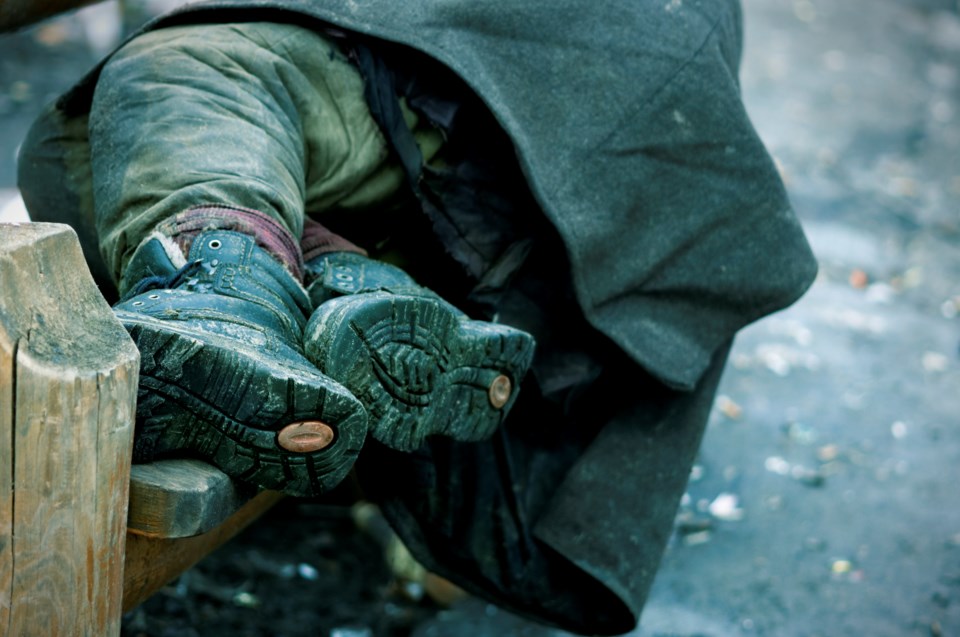The City of New Westminster is working hard to ensure that at-risk and vulnerable citizens aren’t forgotten in the COVID-19 crisis.
The city has set up a special working group – including city staff and representatives from non-profit organizations and faith groups – to coordinate response efforts for vulnerable people in the city.
That mandate covers people such as those in abusive relationships, those facing food insecurity, those who are homeless or with precarious living situations, those with mental health and substance misuse issues, those with precarious or uncertain immigration status and those facing social isolation with limited or no support systems. (A separate working group is being set up to deal specifically with seniors and people with disabilities.)
John Stark, the city’s supervisor of community planning, is heading up the working group. Stark gave a presentation to council on Monday (March 23) at a special meeting called to deal with the COVID-19 pandemic.
He noted that the group is working hard to identify the needs of at-risk people, pointing out that’s where non-profit and faith groups come in.
“They have staff out on the front lines,” he said.
Already, Stark noted, some social service providers in the city – including New Westminster Family Place and the Greater Vancouver Food Bank - have had to change their operations in light of the pandemic.
The working group will include representation from a host of local organizations – among them the Salvation Army, Lower Mainland Purpose Society, Fraserside Community Services, Women In Need Gaining Strength, Lookout, Elizabeth Fry Society and more – so the city can identify needs and respond as quickly as possible.
The group is surveying faith and non-profit groups about their needs in the crisis, and it’s coordinating an effort to have the better-resourced organizations share their resources with others.
Stark noted he doesn’t want to presuppose what the needs of the community may be, but once the working group finds out it will do its best to respond.
As an example, he noted the Seniors Services Society currently has two weeks’ worth of gloves and masks to help it continue its work; one of the working group’s tasks will be to help the society fill that need.
Stark told councillors the working group will coordinate with the school district, since schools provide a number of essential services for vulnerable children and families, including child care and breakfast and lunch programs.
It will also be considering how existing city staff – for instance, parks and recreation employees whose usual jobs are now on hold – can be redeployed to help meet the needs of at-risk citizens.
Stark noted work is now being done to categorize potential helping activities into risk categories – no risk, low risk, medium risk and high risk – and to work through union and liability considerations relating to reassigning staff.
The working group plans to hold formal weekly meetings – a plan that generated some concern at the council table.
Councillors stressed the group should work remotely to avoid the risk of virus transmission.
Coun. Mary Trentadue noted that with the number of people involved in the working group, the city needs to strictly limit how many of them can meet in person.
“I would hate to have any of these people become ill and then take it back to their organizations,” she said, noting that while that concern is true of all the working groups, it’s especially an issue for this one because of the vulnerable populations it serves.
Stark said he shares those concerns, and councillors agreed the working groups can conduct their business remotely – with the city helping with any technological issues that may arise.
Another issue raised by council is how to get the word out to at-risk folks, such as those who are homeless, who are not online to stay abreast of the rapidly changing news.
Stark told council the city already has a means of reaching the homeless and street-entrenched thanks to its extreme weather response program, and it will be using those procedures to help share regular updates about the COVID-19 situation.
Councillors raised a number of issues that should be addressed by the working group, including the provision of food for those in need and the provision of safe housing for homeless people who have nowhere to go to self-isolate.
But Coun. Nadine Nakagawa cautioned the city can’t go it alone on all the challenges it faces.
She said the city needs to be clear about what it can do and what are “advocacy asks” for senior levels of government.
‘It’s easy for the city to want to respond and to do it all,” she said, adding that some issues may be best dealt with by having the city sending them “up the ladder” when they need to. “Cities are closest to folks, and that’s one of our advantages, but that does not meant that’s for us to fund or to deliver necessarily.”



